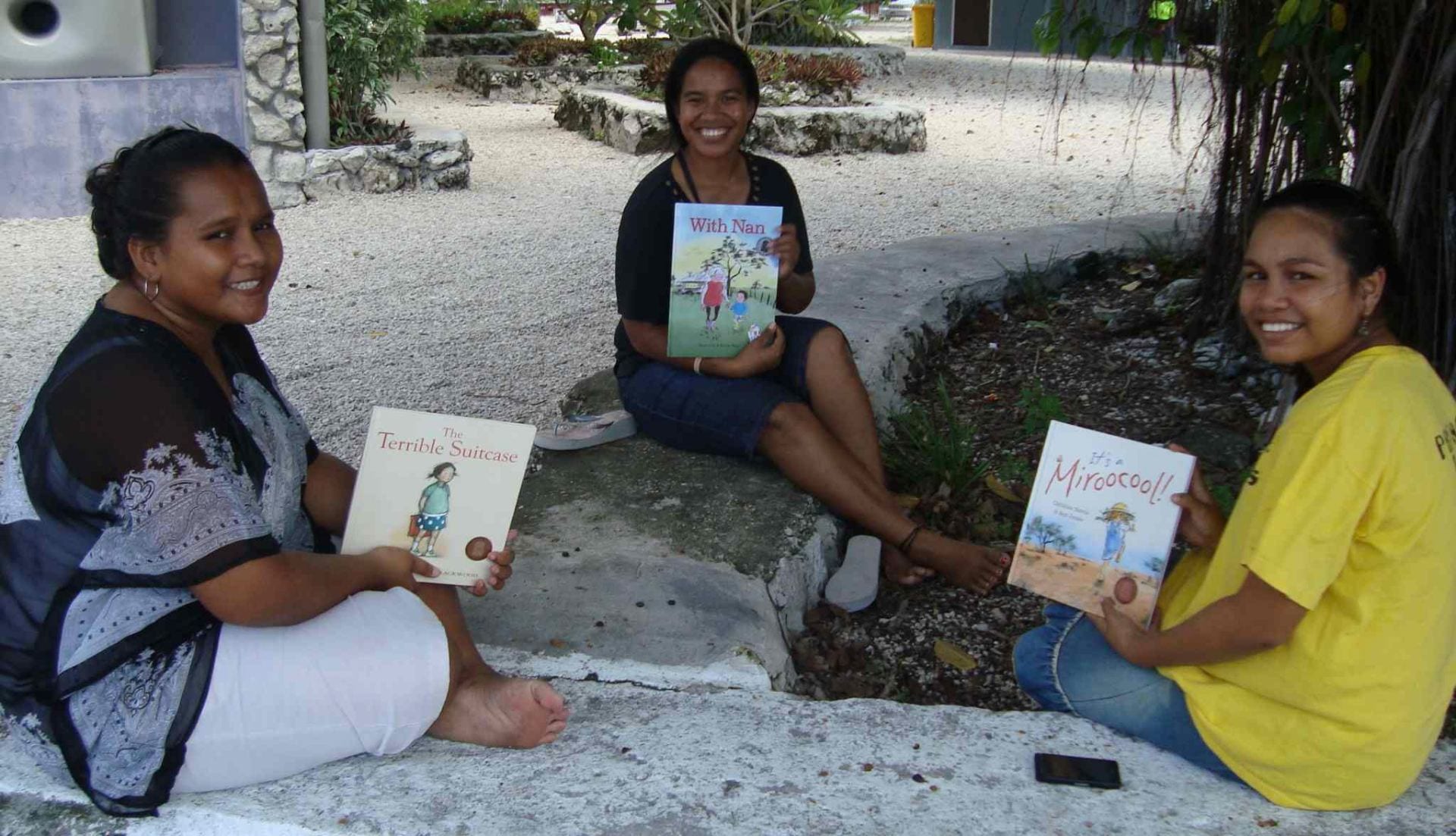Ferrying students to class and back in monsoonal rains is not an unusual job for UNE education lecturers teaching students in Nauru.
But it’s one of the ways having a full-time UNE School of Education presence on the island is helping ensure local students can graduate with a teaching degree and teach in local classrooms.
Rewind five years: “Most teachers teaching in Nauruan schools came from Fiji or Kiribati, having different teaching practices and not necessarily communicating the Nauruan language and culture. There was no teacher training on the island. The Nauru Government Department of Education’s vision was for Nauruan teachers to teach Nauruan school children, to sustain Nauruan culture,” says UNE education lecturer Dr Terry Sullivan, who has spent 20 years university teaching and researching in the Pacific and South-East Asian regions.
The department reached out to UNE to develop an appropriate program solely for Nauruan citizens, meeting the department’s recently revised teacher qualification standards and drawing on the expertise and quality of Australia’s education systems.
“The program is really raising the standard of education in Nauru,” Terry said.
“Students are learning the latest in student-centred teaching. And not only are we training Nauruan teachers with the choice to specialise in either early childhood, primary or a range of secondary subjects, we’re doing some quite significant system improvements, through creating policies like maths, language, health and personal development and inclusive education, to match their teacher training.”
The students also have the opportunity to complete a four-week professional experience in schools around Armidale.
“Before that, they might be learning educational practices online in units without getting a chance to see it happen. But they go away from this practical experience with a different concept of what a classroom looks like. We then teach them ways of adapting to match what they find in the Australian classroom.”
At the end of their training with UNE, students gain an Associate Degree in Teaching (Pacific Focus). They may then articulate into the Bachelor of Education (Pacific Focus).
Terry has been with the program since it started, spending around a quarter of the year every year in Nauru, teaching and supporting the students while the on-island UNE lecturer is taking leave. Back in Armidale, Terry continues to support the students online. He says it’s rewarding to see the transformation in the students upon each visit to Nauru.
“The current cohort has been with us for two years. I’m so impressed with them; they’ve really come out of their shell, they’re confident and so tech savvy that they teach me some things!”
Terry says one of the most important aspects of the program is the face-to-face support.
“The students still grapple with language – English is their second language. Having someone face-to-face to interpret the course requirements and break down the academic language is so important.”
There are cultural barriers too. The students are often nervous about reaching out to their unit coordinators in Australia, so the on-island support person is there to help with this communication, and also to assist balancing study with cultural and family commitments.
Then there are technological barriers.
“Three-quarters of the students don’t have a computer at home, let alone the internet. So, having a physical presence on the island with Mac Pros and equipment for students to use makes all the difference. We can also loan laptops to the students when they can’t make it to class.
“The best bit about this program is that students can stay at home with their families and in their communities and still get a high-quality degree from an Australian university,” Terry said.
The work isn’t done once they graduate: “We follow up with our graduates fairly regularly after they graduate, helping them to implement the ideas and practices they learnt in the course, within their classrooms,” he said.
Now, around 50 per cent of teachers in Nauruan schools are Nauruan nationals who have trained through UNE.
“You can see the impact of the program across the local schools, in their structure and the running of these schools. Also, through our graduate teachers talking to parents, the community is becoming much more education-oriented.”



Recent Comments